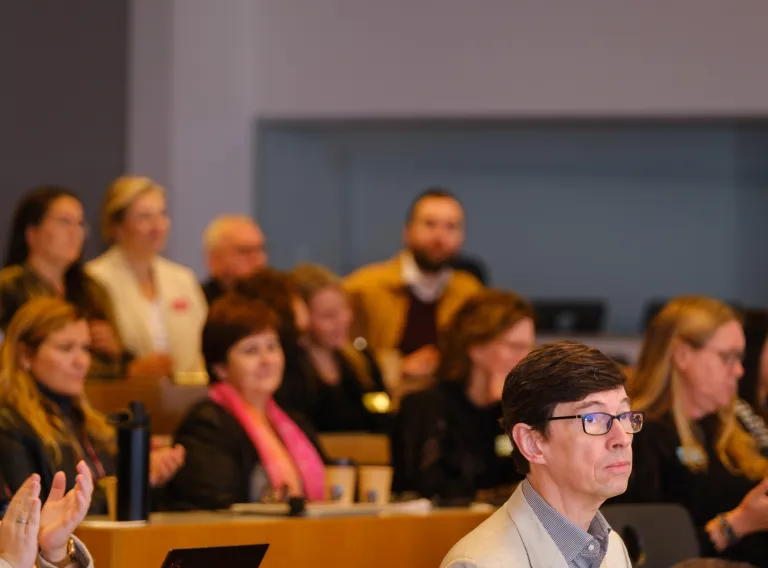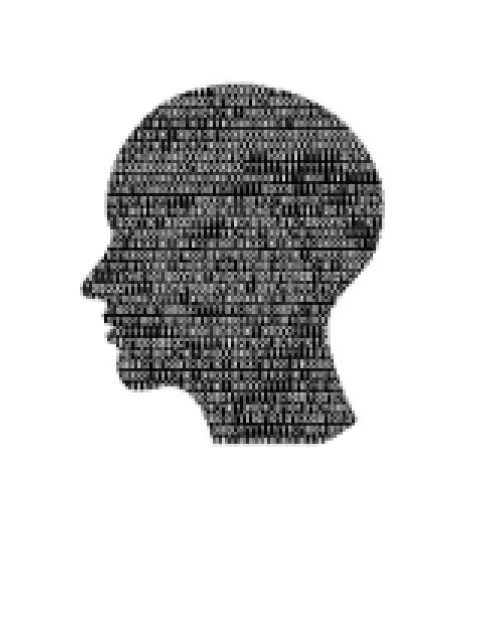

- Do you work with alcoholics?
- Do you want to acquire theoretical and practical knowledge about the issues affecting people with alcohol and substance use disorders?
- Are you interested in preventative measures and treatments?
- Do you want to learn more about how alcohol and substance use disorders affect other family members and family systems?
The diploma in alcohol and drug abuse counselling is an independent, interdisciplinary programme open to students who have completed a BA degree or an equivalent university degree.
Students acquire theoretical and practical knowledge about people with substance use disorders and how these issues affect other family members and family systems. Students also acquire theoretical and practical knowledge of prevention, treatments and the factors that influence policy and management of alcohol and drug abuse issues.
The programme is designed for professionals working with people with alcohol and substance use disorders and their families, e.g. social workers, nurses, psychologists, public health experts, occupational therapists, theologians, doctors and physiotherapists.
Programme structure
The programme is 30 ECTS and is organised as one and a half years of part-time study, which can be completed alongside employment.
Mandatory courses:
- Alcohol and substance abuse I: Policy, theories and multidisciplinary approaches, 10 ECTS
- Alcohol and substance abuse II: Treatment programmes, methods and prevention of addiction, 10 ECTS
- Family interventions in substance abuse, 10 ECTS
Organisation of teaching
Teaching takes place two days per month, a consecutive Thursday and Friday, which makes it easier for students to complete the programme alongside employment.
This programme is taught in Icelandic but most textbooks are in English.
Main objectives
The programme aims to meet the demand for specialised knowledge and skills in the field of alcohol and drug abuse counselling.
Other
It is possible to transfer credits from this programme to an MA in Social Work, on the condition that admission requirements are met.
Applicants must have completed a university degree in the field of social-, education- or health sciences (BA, BS or B.Ed) with a 1st class grade (7,25) on average. Professional experience will also be considered when evaluating the applications.
30 ECTS credits have to be completed for the qualification.
- CV
- Statement of purpose
- Reference 1, Name and email
- Reference 2, Name and email
- Certified copies of diplomas and transcripts
Further information on supporting documents can be found here
Programme structure
Check below to see how the programme is structured.
This programme does not offer specialisations.
- First year
- Fall
- Alcohol and substance abuse I: Policy, theories and multi-disciplinary approaches
- Spring 1
- Alcohol and substance abuse II: Treatment programmes, methods and prevention of addiction
- Family interventions in substance abuse
Alcohol and substance abuse I: Policy, theories and multi-disciplinary approaches (FRG119F)
This course covers the social, psychological and biological aspects of substance use and the development of addiction. Screening and diagnostic models and the characteristics of addiction will be explored. The role of national and international policy will be identified regarding the role it plays in substance use and treatment for various groups of individuals.
The course is taught in three two-day modules which will be evenly distributed over the semester.
Alcohol and substance abuse II: Treatment programmes, methods and prevention of addiction (FRG228F)
This course explores the field of substance abuse as a multidisciplinary discipline with an emphasis on theoretical and biopsychosocial models as well as DSM and ICD diagnosis and screening tests. Students will learn about risk behaviour, recovery, relapse, denial and interventions for people with long term social problems. The course is based on current research in the field of chemical dependency as well as evidence based research on the effectiveness of different treatment programs. This course will help students to be able to work in multi-disciplinary teams in this field.
The course is taught in three two-day sessions which will be evenly distributed over the semester.
Family interventions in substance abuse (FRG231F)
This course explores how substance abuse affects family dynamics. The interrelation between family systems, dependency and drug use patterns will be examined. Symptoms of drug dependency in the family and the subsequent impact on family roles and the health of family members will be explored. Research, theories and working methods in family interventions and family therapy will be introduced.
The course is taught in three two-day sessions which will be evenly distributed over the semester.
- Fall
- FRG119FAlcohol and substance abuse I: Policy, theories and multi-disciplinary approachesMandatory (required) course10A mandatory (required) course for the programme10 ECTS, creditsCourse Description
This course covers the social, psychological and biological aspects of substance use and the development of addiction. Screening and diagnostic models and the characteristics of addiction will be explored. The role of national and international policy will be identified regarding the role it plays in substance use and treatment for various groups of individuals.
The course is taught in three two-day modules which will be evenly distributed over the semester.
Face-to-face learningPrerequisitesAttendance required in class- Spring 2
FRG228FAlcohol and substance abuse II: Treatment programmes, methods and prevention of addictionMandatory (required) course10A mandatory (required) course for the programme10 ECTS, creditsCourse DescriptionThis course explores the field of substance abuse as a multidisciplinary discipline with an emphasis on theoretical and biopsychosocial models as well as DSM and ICD diagnosis and screening tests. Students will learn about risk behaviour, recovery, relapse, denial and interventions for people with long term social problems. The course is based on current research in the field of chemical dependency as well as evidence based research on the effectiveness of different treatment programs. This course will help students to be able to work in multi-disciplinary teams in this field.
The course is taught in three two-day sessions which will be evenly distributed over the semester.
Face-to-face learningPrerequisitesAttendance required in classCourse taught first half of the semesterFRG231FFamily interventions in substance abuseMandatory (required) course10A mandatory (required) course for the programme10 ECTS, creditsCourse DescriptionThis course explores how substance abuse affects family dynamics. The interrelation between family systems, dependency and drug use patterns will be examined. Symptoms of drug dependency in the family and the subsequent impact on family roles and the health of family members will be explored. Research, theories and working methods in family interventions and family therapy will be introduced.
The course is taught in three two-day sessions which will be evenly distributed over the semester.
Face-to-face learningPrerequisitesAttendance required in class
The University of Iceland collaborates with over 400 universities worldwide. This provides a unique opportunity to pursue part of your studies at an international university thus gaining added experience and fresh insight into your field of study.
Students generally have the opportunity to join an exchange programme, internship, or summer courses. However, exchanges are always subject to faculty approval.
Students have the opportunity to have courses evaluated as part of their studies at the University of Iceland, so their stay does not have to affect the duration of their studies.
An education in this field will benefit professionals working with alcohol and drug abuse issues, including:
- Social workers
- Nurses
- Psychologists
- Public health experts
- Occupational therapists
- Theologians
- Doctors
- Physiotherapists
- Education and prevention experts
This list is not exhaustive
Faró is the organisation for social work students at the University of Iceland.

Study wheel
What interests you?
How to apply
Follow the path
If you still have questions, feel free to contact us.
The School office offers support to students and lecturers, providing guidance, counselling, and assistance with various matters.
You are welcome to drop by at the office in Gimli or you can book an online meeting in Teams with the staff.
